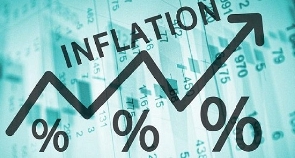A report by GCB Capital has projected that Ghana's inflation could reduce in July 2023 but food prices still pose a significant threat.
According to the report, even though noon-food inflation may be slowing down, this may not have a significant effect on easing inflation.
The report titled: “Policy Insights: Ghana’s June -23 Inflation Update” said, “While the disinflation process could resume in July 2023, the food basket remains a significant source of price pressure.”
The report also predicted that the declining effect of new tariff measures could help bring inflation down in July 2023.
“We expected the waning lagged impact of the revenue and utility tariff measures and the favourable base effects to reset inflation on the downward path from July 23 and reinforce low inflation expectations, all things being equal. We flag the simmering food price pressures as a near-term upside risk to inflation, which could moderate the pace of disinflation,” it added.
Inflation rate for June increases marginally to 42.5%
Ghana’s inflation rate for June has increased marginally to 42.5% from the 42.2 % recorded in May 2023.
This means that this is the rate at which prices of goods and services increased in June.
It also indicates that in the month of June 2023, the general price level was 42.5 percent higher than in June 2022.
The Ghana Statistical Service announced this on July 12, 2023. Also, month-on-month inflation between May 2023 and June 2023 was 3.2 percent.
Food inflation remains high at 54.2% but higher than the 51.8% recorded last month while non-food inflation saw a marginal decrease to 33.4% from 34.6% last month.
Inflation for locally produced items and imported items was 35.9% and 44.5% respectively.
Watch the latest edition of BizTech and Biz Headlines below:
SSD/MA
Business News of Friday, 14 July 2023
Source: www.ghanaweb.com

















